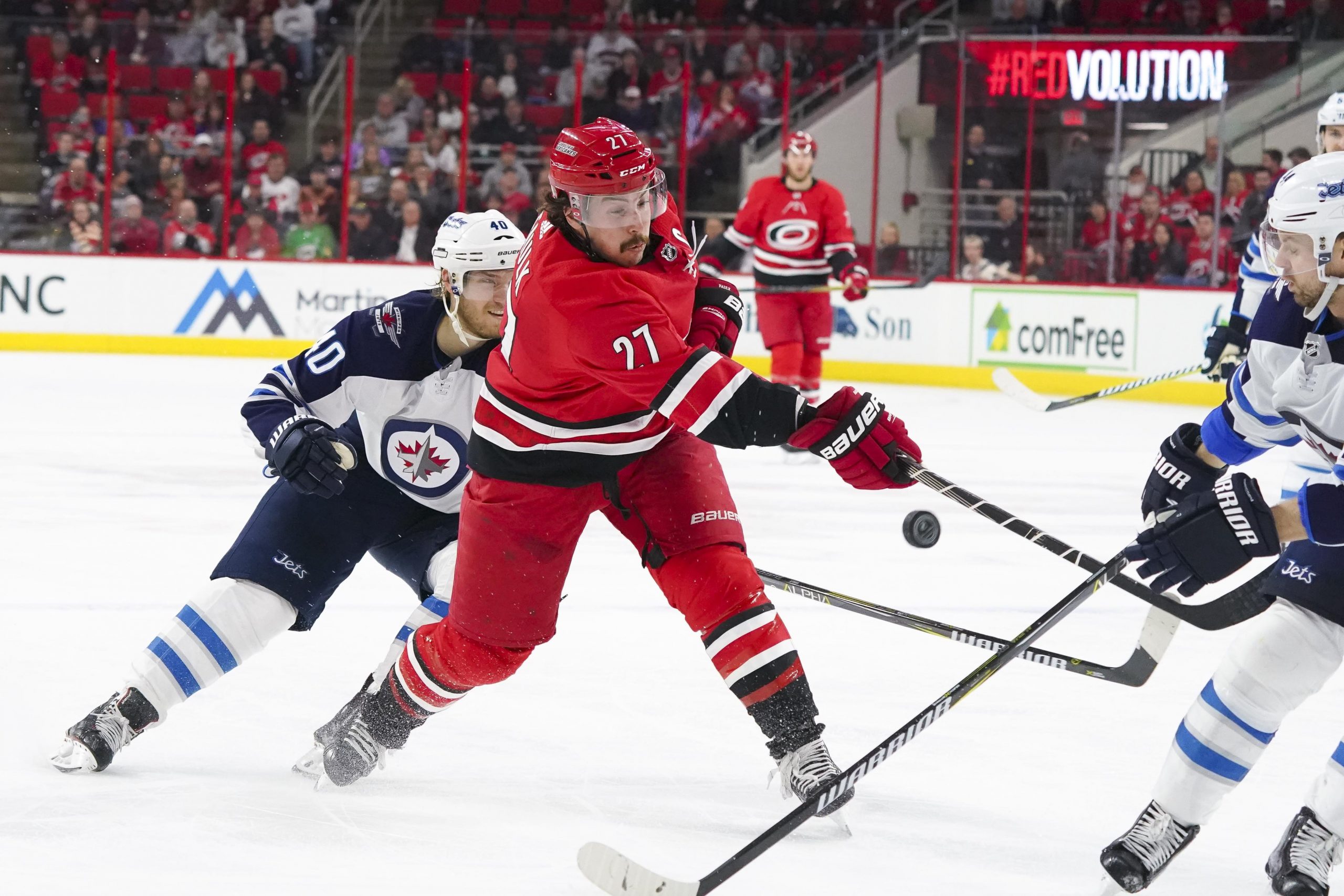In so many ways, Tuesday’s big trade that saw Justin Faulk traded to the St Louis Blues in a 3 player, 2 pick exchange, came late. It came late in the offseason, late in his contract and too late for Faulk to win St. Louis’s first Stanley Cup.
We are already into training camp, and even preseason for NHL franchises. Some teams have already started making their cuts. Faulk could have been a major component to the Hurricanes, and perhaps he will be for the Blues as well, but there hasn’t been a player trade in over a month, and most teams, if they were making big moves in late September, would be settling the score with restricted free agents.
And speaking of restricted free agents, that’s why Faulk took so long to get traded. Faulk was not an RFA, but the late developing RFA market paralyzed a lot of teams. How many squads that were on Faulk’s no-trade list were going to be able to foot his bill either this year or in the following years of whatever extension they agreed to? Faulk was only under contract for this year, so adding his salary was either going to be a palatable option for teams that knew what they could handle either this year or the next several.
It’s not really difficult to see why Faulk approved the trade to the Blues (rumor is that Faulk turned down a deal to Anaheim), given that they are coming off a Stanley Cup title. Unfortunately, that almost disqualifies them from winning it again, at least this year.
Cup fatigue is a very real issue for teams coming back after a shortened offseason. St. Louis is probably going to be more severely at the mercy of this affliction, as they were so far behind the eight ball after the first several weeks, and then had to bust their asses not only to reach the playoffs, but then to win the Cup. This team A) was not the best team through the regular season last year, and B) will be flat out exhausted this season. Faulk isn’t really in a great spot to be welcomed aboard.
Now, St. Louis has rectified many of their own latency issues by adding on a 7 year extension for Faulk, who really was not in a bad spot at all. Carolina probably stood to lose the most with the deal coming when it did. They had less control over the player to offer to the acquiring team, and they even needed to go with their second choice in St Louis.
Almost everyone will probably be happy with the trade when all is said and done, but Carolina will be left to wonder whether they should have acted sooner.
Add The Sports Daily to your Google News Feed!
